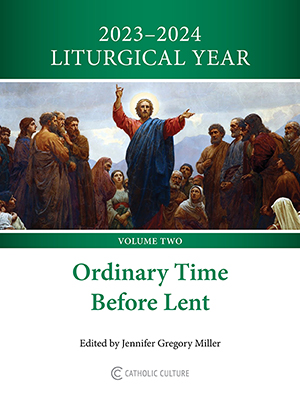Repealing blasphemy laws is not always smart
By Dr. Jeff Mirus ( bio - articles - email ) | May 11, 2015
My headline, occasioned by Norway’s repeal of its blasphemy law, may surprise some people. Especially with so many Christians being prosecuted under the blasphemy laws of Islamic states, we might think that blasphemy laws are a great evil. And they are, if “blasphemy” means “religious inquiry” or personal “efforts to convert others”.
But three quick points:
First, Norwegian lawmakers cited solidarity with the victims of the Charlie Hebdo shooting as the reason for repealing their relatively old and long unused law. But if you consider that Charlie Hebdo deliberately poured gas on a religious fire, one must ask whether it sends the right message to repeal the kind of law under which government could have prevented Charlie Hebdo from deliberately jeopardizing the common good. Might Norway’s decision increase the likelihood of violence by serving notice that a Western state will condone anything said or written about disfavored religious groups?
Second, this consideration introduces one of the moral reasons for government to restrict public anti-religious “speech”—namely, the needs of the common good. While regulation of public forms of expression can be a slippery slope, this is true of virtually all law. But government has a serious moral responsibility under the natural law to protect the common good. This clearly extends to the restriction, within reason, of public speech and actions which may be expected, or in fact may be designed, to oppress others or to precipitate a violent response.
Third, this mention of the natural law calls to mind the legitimate role of government in the matter of religion. For prudential reasons, one may wish to keep a particular government out of religion due to the expectation that it will act incorrectly. The demands of prudence are not trivial. But it remains true that the recognition of both God and the moral imperative of reverence is built into nature. This recognition is demanded by the natural law of all persons, at all times, and in all roles. It is not restricted to those who accept a special revelation (which the State has no special competence to interpret). This recognition of God and the imperative of reverence is an important element in the common good. As such, it is a requirement of all human government.
Any government which refuses a natural recognition of God while protecting the public mockery of God (or, by extension, of religion) is itself harming the common good. God is not absent from nature, and there is no such thing in nature as a completely secular domain. We should not be fooled into an uncritical acceptance of secularism in the public order.
All comments are moderated. To lighten our editing burden, only current donors are allowed to Sound Off. If you are a current donor, log in to see the comment form; otherwise please support our work, and Sound Off!









